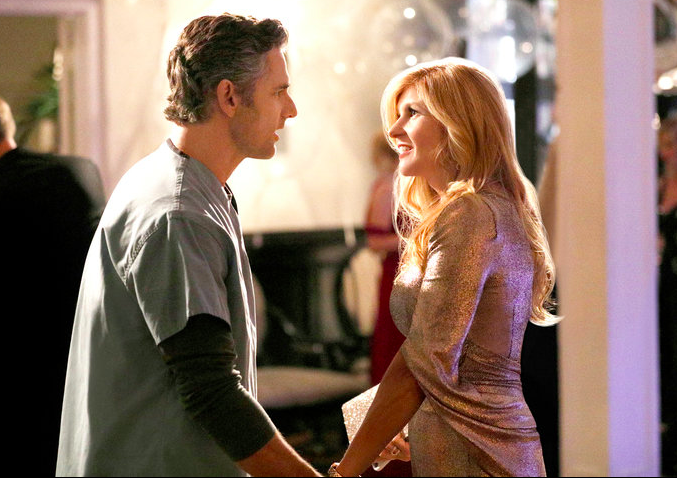Podcasts are the future.
Podcasts aren’t the whole future.
Podcasts are hit or miss.
Wait, there’s another shiny object!
The announcement Wednesday that BuzzFeed would be discontinuing most of its podcasts and firing its in-house audio team was the latest discordant note in a fast-growing medium.
BuzzFeed's move followed Panoply's announced exit from podcast-making last week and reinforced the latest flavor for digital sites: Making content deals with Hollywood.
The move also reflected two truths in the industry: Quality podcast-making is expensive and not for dilettantes, and many podcast “seasons” often don’t amount to full 52-week employment conducive to salaries.
“We’ve decided to move to a production model that is more like our TV projects — that is, treating shows as individual projects, with teams brought on as needed,” said Shani O. Hilton, vice president of news and programming at BuzzFeed News, in a memo to employees.
It’s not “pivot to video” it’s “pivot to freelancers” and that’s true across audio and across media. The gig economy is coming for all of us.
— Alex Sujong Laughlin (@alexlaughs) September 20, 2018
“As needed” often means temporary, episodic or contract work. The decision to fire the in-house team has been unpopular in the BuzzFeed newsroom. Some of the now-canceled podcasts had been promoted as part of a strategy of reaching out to nontraditional listeners. The highly regarded "See Something, Say Something," hosted by BuzzFeed's Ahmed Ali Akbar, sought to cover "everything American Muslims are talking about right now." Also winding down: "What's Left," a weekly podcast on America's varied strands of left-wing politics. (BuzzFeed is retaining "Thirst Aid Kit," which explores the public ways American women express their desire.)

One take of the downsizing, voiced by a BuzzFeed employee: Podcast revenue is not the nirvana sought by a company eager to show it did over $100 million in revenue last quarter. It's slow and steady, and requires a core commitment to audio storytelling.
Another take, from a veteran podcast editor: There are too many podcasts competing for a limited ad pool. Although listenership is reported as rising, it’s difficult to measure actual listeners, and the breakout "hits" are few and far between.
"Everybody wants a 'Serial,' but nobody wants to spend 'Serial' money," the editor says of the "This American Life" podcast series, which launched its third season Thursday (and within hours, had topped the iTunes podcast chart.)
Another dream is a podcast like Wondery and the Los Angeles Times's "Dirty John," currently No. 10 on the chart. The serialized story is the gift that keeps on giving. Connie Britton and Eric Dana are starring in a Bravo TV series on the story, and its success inspired Wondery's true-crime followup podcast, "Dr. Death," which was No. 1 on the iTunes list earlier this month. (Wondery also helped produce the springtime true-crime podcasting chart-topper "Felonious Florida" with South Florida's Sun Sentinel.

The latest shiny object is selling a nonfiction story or video series to television, cable and streaming outlets. BuzzFeed's Hilton cited the video partnerships the site has with Netflix, Twitter and Facebook as models of production. If there is a solid podcast idea, a site can hire freelancers or, if it has a high budget and/or big sponsor, turn to high-prices creative studios such as Pineapple Studio or Neon Hum for help.
Some of the canceled podcasts may find new homes in places with more realistic expectations. "See Something" and Slate/Panoply's "Family Ghosts" (which has a second season in the can) are in the process of regaining intellectual rights back, building a website and perhaps getting a new distributor. Another canceled Panoply podcast, "Harry Potter and the Sacred Text," drew strong financial support from listeners and relaunched last week on the subscription-based Patreon network. Potter also has a strong newsletter and a series of live events.
Last week, longtime Slate chief Jacob Weisberg and "Revisionist History" host Malcolm Gladwell left the Slate/Panoply world to set up their own company to produce podcasts, audiobooks and short-form audio content. It plans to continue "History" and Gladwell's music podcast with Rick Rubin and Bruce Headlam, "Broken Record."
Weisberg is bullish on creating content for the field, even if Panoply is not. So are, at least for now, PRX, This American Life, Stitcher (Midroll), Gimlet (at least its Homecoming podcast), The New York Times and NPR and WNYC Studios.
Despite the permutations, Weisberg has been consistent on his love for audio storytelling. “The thing in the last two years I have enjoyed the most has been working on podcasts and audio programming, developing the shows with Malcolm,” he said in a statement last week.
Readers, has your podcast listening increased or changed this year? If so, how so? Tell me your recent favorites at dbeard@poynter.org.








